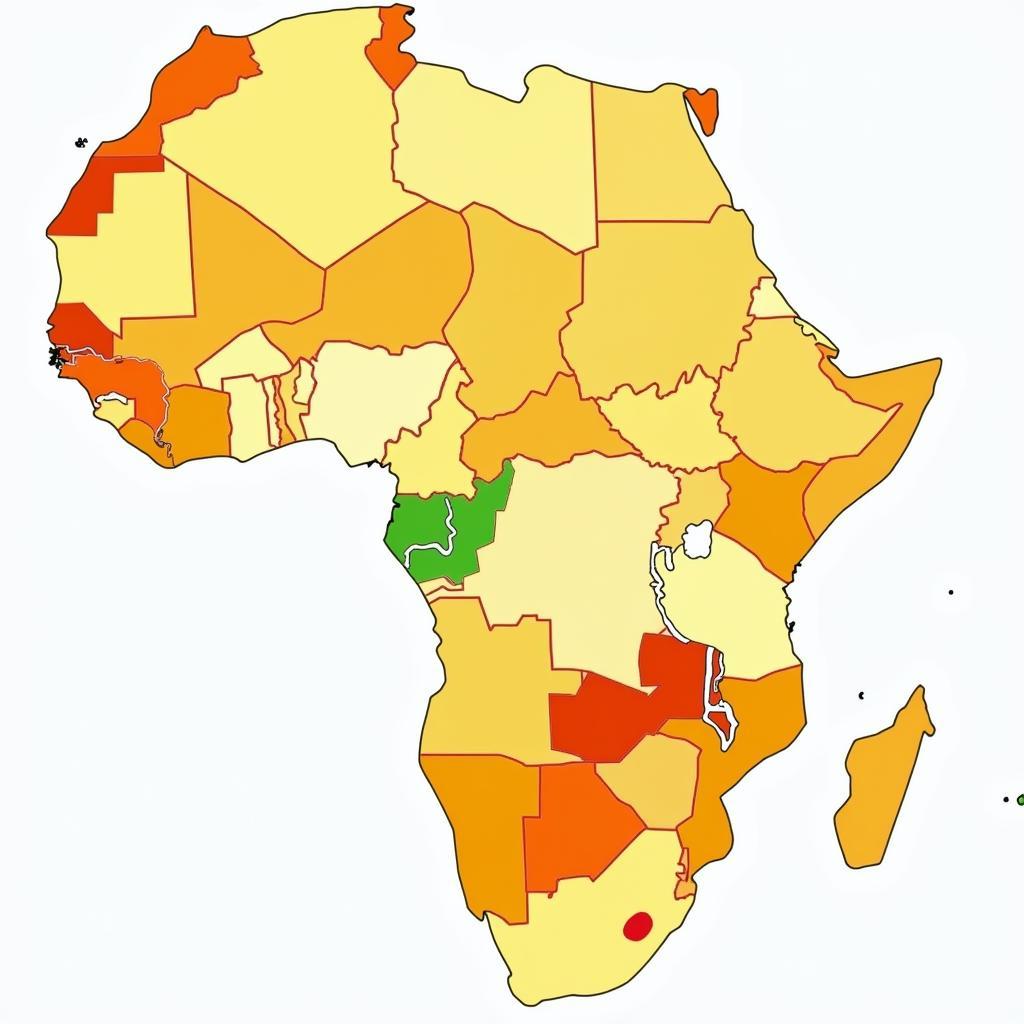African Encephalitis Mosquito: What You Need to Know
African encephalitis is a serious disease that can be transmitted to humans through the bite of an infected mosquito. While the name might conjure images of a continent under siege by a single, identifiable insect, the reality is far more nuanced. “African Encephalitis Mosquito” itself isn’t a scientific term but rather a reflection of the public’s need to understand a complex issue. This article delves into the mosquitoes responsible for spreading encephalitis in Africa, the diseases they carry, and the precautions you can take to stay safe.
Understanding the Culprit: It’s Not Just One Mosquito
It’s crucial to understand that multiple mosquito species, not just one, can transmit various types of encephalitis in Africa. Some of the most significant culprits include:
- Culex mosquitoes: This genus is widespread globally and includes species responsible for transmitting diseases like West Nile Virus, which can cause encephalitis.
- Aedes mosquitoes: Known for their distinctive black and white markings, Aedes mosquitoes are infamous for spreading viruses like Zika, dengue, and yellow fever. While not all of these directly cause encephalitis, they can lead to severe neurological complications.
- Mansonia mosquitoes: Found in proximity to water bodies with thick vegetation, Mansonia mosquitoes are vectors for diseases like Rift Valley fever, which can manifest with encephalitic symptoms.
African Encephalitis Mosquito-Borne Diseases: A Closer Look
The term “encephalitis” refers to inflammation of the brain, often caused by a viral infection. In Africa, several mosquito-borne viruses can lead to encephalitis:
- West Nile Virus: Spread primarily by Culex mosquitoes, West Nile Virus often presents with mild, flu-like symptoms. However, in some cases, it can progress to severe neurological diseases like encephalitis or meningitis.
- Rift Valley Fever: Transmitted by Aedes and Culex mosquitoes, Rift Valley fever can affect both humans and animals. While many experience mild symptoms, a small percentage develop severe manifestations, including encephalitis, hemorrhagic fever, and ocular disease.
- Japanese Encephalitis: While more common in Asia, Japanese encephalitis can occur in parts of Africa. It’s primarily transmitted by Culex mosquitoes, and a significant proportion of infected individuals develop encephalitis, leading to long-term neurological complications.
Protecting Yourself: Key Strategies for Prevention
Preventing mosquito bites is the most effective way to avoid African encephalitis. Here’s how:
- Use Insect Repellent: Choose repellents containing DEET, picaridin, or IR3535, and apply them according to instructions.
- Wear Protective Clothing: When outdoors, particularly during peak mosquito activity times, wear long sleeves, pants, and light-colored clothing.
- Sleep Under Mosquito Nets: Insecticide-treated nets provide an additional barrier against mosquito bites, especially during sleep.
- Eliminate Breeding Sites: Remove stagnant water sources around your home, as these can serve as breeding grounds for mosquitoes. Regularly clean gutters, empty containers, and maintain swimming pools.
African Encephalitis Mosquito: FAQs
1. What are the symptoms of encephalitis?
Symptoms can vary but may include fever, headache, stiff neck, confusion, seizures, and paralysis.
2. Can encephalitis be treated?
There is no specific treatment for most viral encephalitis. Treatment often focuses on managing symptoms and providing supportive care.
3. Who is at risk of developing severe encephalitis?
Infants, young children, older adults, and individuals with weakened immune systems are at higher risk of developing severe complications.
4. Are all mosquito bites in Africa dangerous?
Not all mosquitoes carry diseases. However, it’s crucial to take precautions to avoid mosquito bites as they can transmit several serious illnesses.
5. What should I do if I suspect I have encephalitis?
Seek immediate medical attention if you experience any symptoms of encephalitis, especially after traveling to or living in an area with mosquito-borne diseases.
Need Help? Contact Us
If you require further assistance or have questions regarding encephalitis, mosquito prevention, or other health concerns, please don’t hesitate to contact us.
Phone: +255768904061
Email: kaka.mag@gmail.com
Address: Mbarali DC Mawindi, Kangaga, Tanzania.
Our dedicated customer support team is available 24/7 to assist you.



